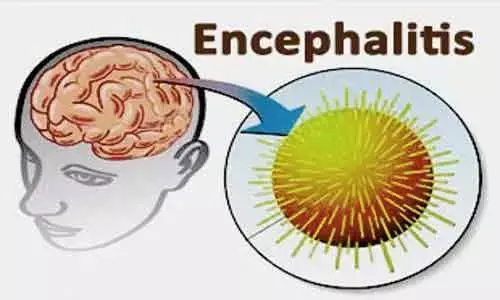- Home
- Medical news & Guidelines
- Anesthesiology
- Cardiology and CTVS
- Critical Care
- Dentistry
- Dermatology
- Diabetes and Endocrinology
- ENT
- Gastroenterology
- Medicine
- Nephrology
- Neurology
- Obstretics-Gynaecology
- Oncology
- Ophthalmology
- Orthopaedics
- Pediatrics-Neonatology
- Psychiatry
- Pulmonology
- Radiology
- Surgery
- Urology
- Laboratory Medicine
- Diet
- Nursing
- Paramedical
- Physiotherapy
- Health news
- Fact Check
- Bone Health Fact Check
- Brain Health Fact Check
- Cancer Related Fact Check
- Child Care Fact Check
- Dental and oral health fact check
- Diabetes and metabolic health fact check
- Diet and Nutrition Fact Check
- Eye and ENT Care Fact Check
- Fitness fact check
- Gut health fact check
- Heart health fact check
- Kidney health fact check
- Medical education fact check
- Men's health fact check
- Respiratory fact check
- Skin and hair care fact check
- Vaccine and Immunization fact check
- Women's health fact check
- AYUSH
- State News
- Andaman and Nicobar Islands
- Andhra Pradesh
- Arunachal Pradesh
- Assam
- Bihar
- Chandigarh
- Chattisgarh
- Dadra and Nagar Haveli
- Daman and Diu
- Delhi
- Goa
- Gujarat
- Haryana
- Himachal Pradesh
- Jammu & Kashmir
- Jharkhand
- Karnataka
- Kerala
- Ladakh
- Lakshadweep
- Madhya Pradesh
- Maharashtra
- Manipur
- Meghalaya
- Mizoram
- Nagaland
- Odisha
- Puducherry
- Punjab
- Rajasthan
- Sikkim
- Tamil Nadu
- Telangana
- Tripura
- Uttar Pradesh
- Uttrakhand
- West Bengal
- Medical Education
- Industry
Antibiotics in Encephalitis: AIIMS guidelines

Delhi: All India institute of medical sciences has released guidelines on antibiotics use in various infections. Under the section of neurological infections the management of Encephalitis. Encephalitis often leads to only mild flu-like non-specific signs and symptoms — such as a fever or headache — or no symptoms at all. Sometimes the flu-like symptoms are more severe. Encephalitis can also cause confused thinking, seizures, or problems with senses or movement. often causes only mild flu-like signs and symptoms — such as a fever or headache — or no symptoms at all. Sometimes the flu-like symptoms are more severe. Encephalitis can also cause confused thinking, seizures, or problems with senses or movement.
Main recommendations are:
Encephalitis :
When to suspect?
Encephalitis should be suspected in all patients with fever and altered sensorium. Other supportive findings include new seizures, focal neurologic signs, and radiological abnormalities. The threshold to suspect should be low as delay in diagnosis can be fatal.
How to diagnose?
The investigations that should be obtained in all patients with suspected encephalitis include complete blood count with differential, electrolytes, renal and liver function tests, blood cultures, appropriate tests for diagnosing HIV, malaria, dengue, scrub typhus and leptospirosis.
Lumbar puncture - Cerebrospinal fluid- opening pressure, cell count and differential, protein, glucose, gram stain, bacterial cultures, and HSV-1/HSV-2 polymerase chain reaction (PCR) for all patients. Other viruses specific polymerase chain reaction may be considered in suspected cases. Polymerase chain reaction for bacteria when available should be sought.
Magnetic resonance imaging (MRI) of the brain should be performed in all patients. Computed tomography should be used only if Magnetic resonance imaging is unavailable or cannot be performed.
Etiology: Herpes simplex virus, Malaria, scrub typhus, dengue, leptospirosis and other viruses in addition to causes listed for meningitis
Treatment: The treatment is as follows-
Ceftriaxone 2 gm IV BD plus Vancomycin 1-2 gm IV BD+ intravenous Acyclovir 10 mg/kg TDS + Doxycycline 100 mg BD
Special remarks:
Malaria should be ruled out by at-least two rapid diagnostic tests 12 hours apart
Dr Kamal Kant Kohli-MBBS, DTCD- a chest specialist with more than 30 years of practice and a flair for writing clinical articles, Dr Kamal Kant Kohli joined Medical Dialogues as a Chief Editor of Medical News. Besides writing articles, as an editor, he proofreads and verifies all the medical content published on Medical Dialogues including those coming from journals, studies,medical conferences,guidelines etc. Email: drkohli@medicaldialogues.in. Contact no. 011-43720751


